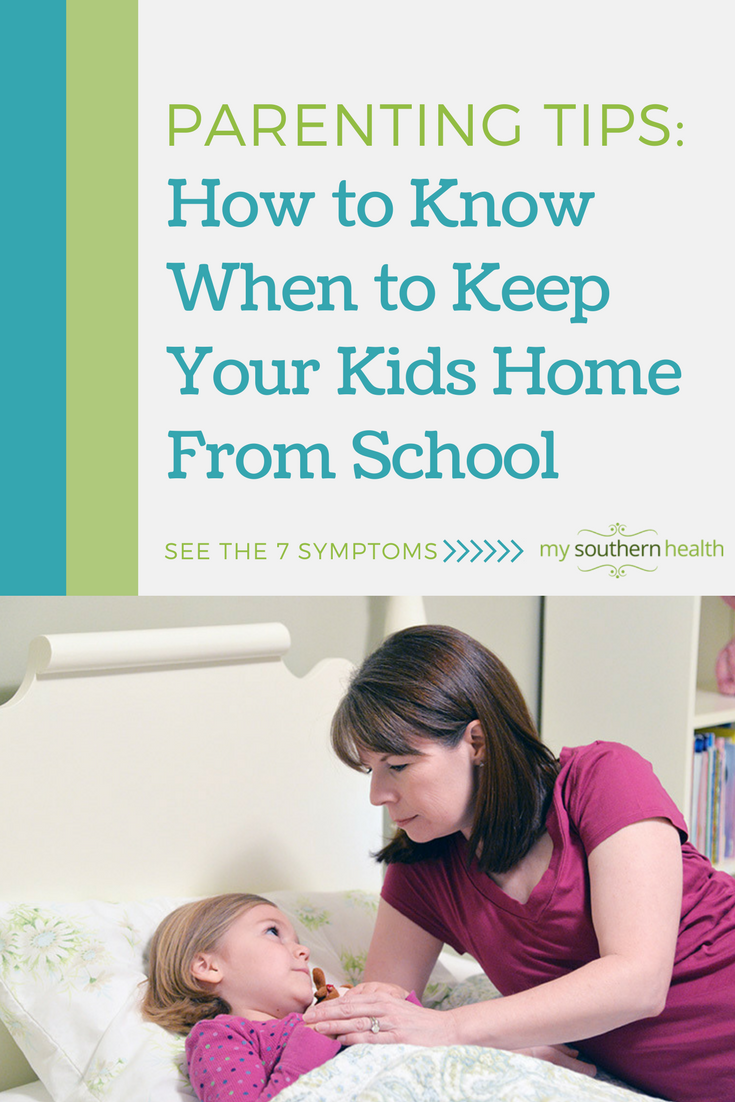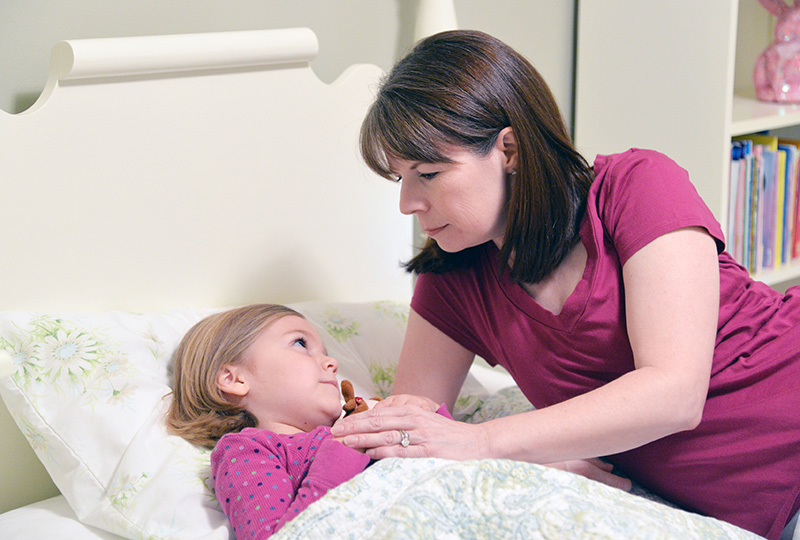Remember these 7 symptoms to know if a child is too sick to go to class.
Well, it’s that time of year. The weather is colder and the sun says goodbye for the day around 4:30 p.m. It’s the perfect time for hot chocolate, gathering in front of a fireplace, and (unfortunately) picking up germs.
As much as we worry about ourselves staying healthy through the winter, we worry even more about our children. Mainly because we love them to the moon but also because the little rugrats pick up germs the way Velcro picks up, well, everything. And while sending your child to school/daycare has many benefits, there will likely be some days during this season when you will need to keep your child home.
The basic rule is to keep children home if they don’t feel well enough to participate in classroom routines. Remember that rest and your care at home will be best for your child, as well as for friends at school. By keeping your child home, you are minimizing exposure to other kids and hopefully preventing further spread of illness.
If your child has any of the following, you should keep him home unless symptom-free for 24 hours or on antibiotics for the same amount of time:
- Fevers (anything greater than 100.4 degrees). Please refrain from giving Tylenol or Motrin and sending your child off to school anyway; that’s not really the best thing for your child or the kid who sits next to her at school.
- Vomiting more than twice in a day (once is a freebie, but more than that becomes concerning).
- Diarrhea more than twice in a day.
- Coughing with significant mucous production or difficulty breathing.
- Strep throat or signs concerning for strep throat including fevers, sore throat and headache.
- Pink eye. Most schools will ask for a doctor’s note stating your child is on antibiotics, but because most cases of pink eye are caused by viruses, a doctor’s note stating the child is no longer contagious should suffice.
- Rash. If you know it’s eczema or irritation from a new laundry detergent, by all means send your child out the door. But when a rash is accompanied by fevers or a general sense of malaise, it’s usually best to see the doctor.
Remember that most kids will get cold symptoms during this season, and it’s OK to send your children to school with runny noses provided they don’t have any of the other symptoms above. Just make sure to stuff tissues into backpacks, jacket pockets, and any other nooks and crannies you can find.
And remember that as easy as it is to feel helpless against germs this season, you can teach your kids to stay as healthy as possible by encouraging the following:
- Avoid touching their faces. Germs love to come in through your nasal passages, mouth and eyes.
- Wash hands for at least 20 seconds with soap, especially after using the bathroom and before eating. When a sink is not available, wet wipes or hand sanitizer are close seconds.
- Cover, cover, cover when coughing or sneezing.
- No sharing food or drinks. For little kids, teach them to properly drink from a water fountain.
- Remember if your child is over 6 months of age, to get a flu shot (as well as yourself).
- Encourage good sleep and diet habits.
Maya Neeley, M.D., is a board-certified pediatrician specializing in hospital medicine at Monroe Carell Jr. Children’s Hospital at Vanderbilt. She adores her husband and four young boys and loves spending time with family and good friends. As a child, she always dreamed of becoming a children’s book illustrator but for now she just dreams of getting a good night’s sleep.


Vanderbilt’s Children’s After-Hours Clinics offer the convenience of a walk-in clinic with care provided by a board-certified pediatrician from Children’s Hospital. No appointment is necessary, but we recommend calling your pediatrician first. Learn more about services and find locations for Children’s Hospital After-Hours Clinics.

